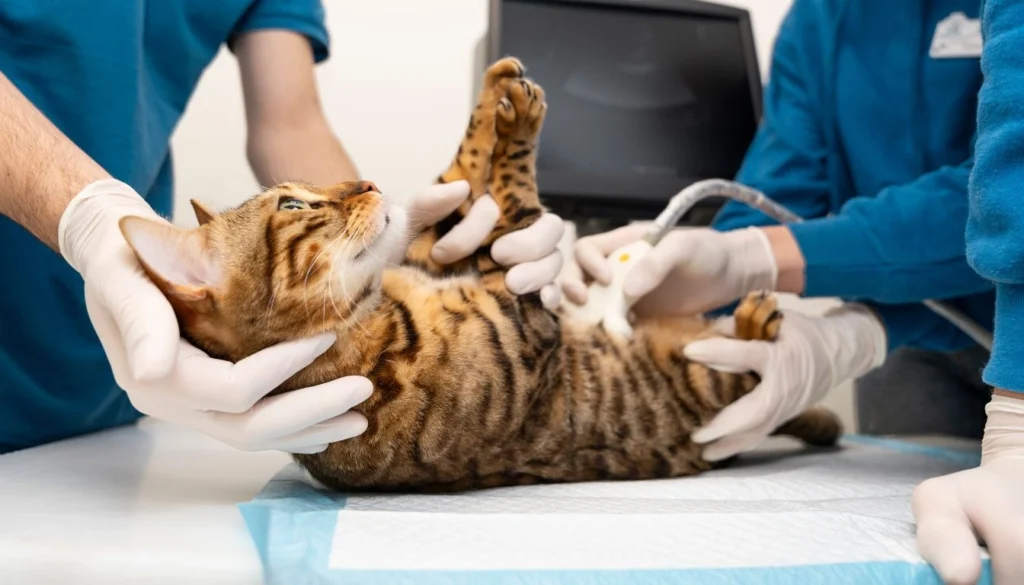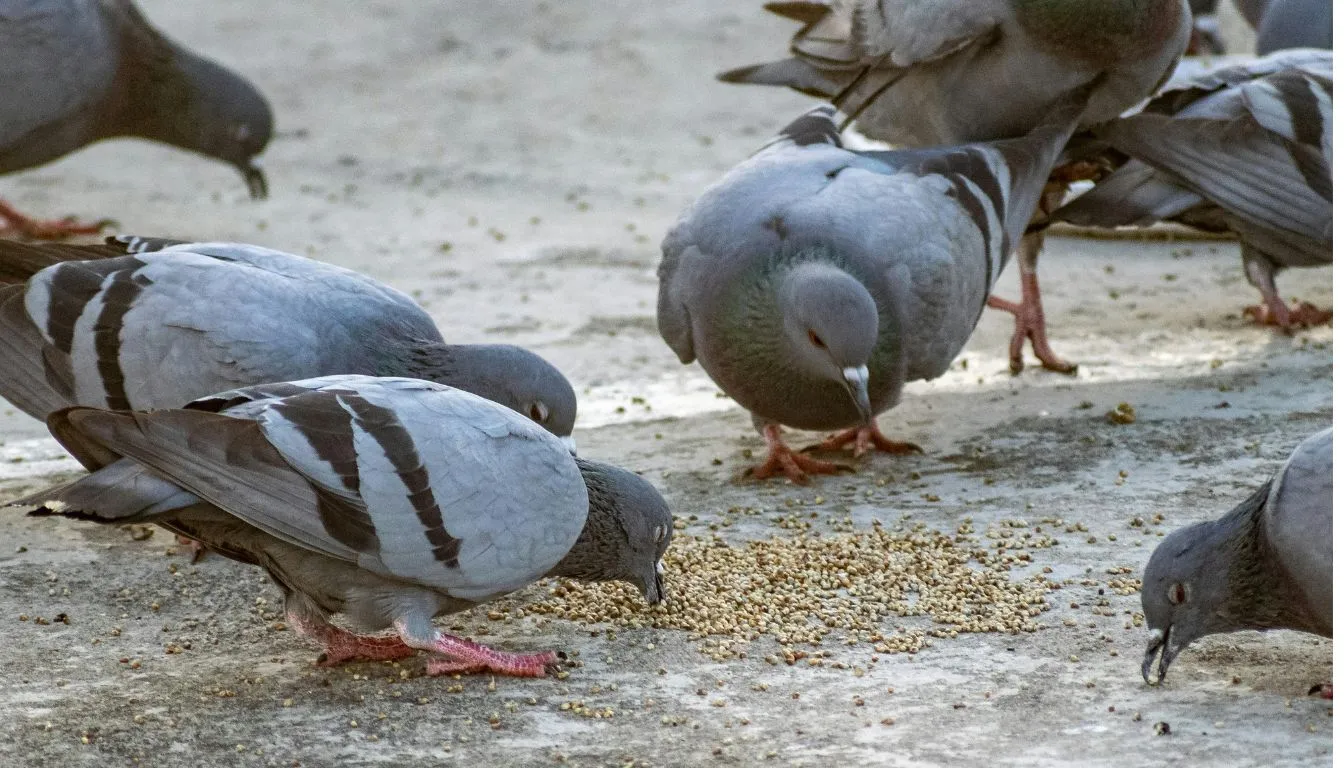Have you ever encountered a feline with a face so distinctly endearing that it caused you to pause? Some cats exhibit peculiar behaviors and facial features that make pet owners wonder if cats can have disorders like Down syndrome. Online, the phrase “Down Syndrome cat” has become more well-known and is frequently used to characterize cats that have unusual characteristics like wide-set eyes, flat noses, or oddball movements. But is this a misconception or a legitimate medical condition in cats? This article will examine the reality of the “Down Syndrome cat” phenomenon and identify potential causes for these variations in our feline companions.
Table of Contents
Understanding What Makes a Cat “Different”
Each cat has its own distinct personality, peculiarities, and habits. However, occasionally, some cats display characteristics that are very different from the norm, either in terms of appearance or behavior. These variations may be brought on by neurological disorders, congenital diseases, or genetic abnormalities. These differences may cause anxiety for many cat parents, and for some, they prompt inquiries about diseases such as feline Down syndrome.
Can Cats Really Have Down Syndrome?
The Science Behind Chromosomal Conditions in Cats
An extra copy of chromosome 21 (trisomy 21) causes Down syndrome in humans. However, cats only have 19 pairs of chromosomes, and their genetic composition lacks an analog of human chromosome 21. According to science, cats cannot have Down syndrome in the same way that it is known to exist in humans.
How Feline Anatomy Differs from Humans
Because the genetic structure of cats is significantly different, veterinarians and geneticists do not classify any feline condition as true Down syndrome. However, cats can exhibit a combination of physical and behavioral traits that resemble those seen in humans with Down syndrome.
Why the Term “Feline Down Syndrome” Is Misleading
While it’s common for pet owners to refer to these cats as having “Down syndrome,” the term is a misnomer. What they usually have are congenital defects, neurological impairments, or other rare genetic mutations that cause similar symptoms. Despite the inaccuracy of the label, the love and care these cats require is very real.
Signs That Your Cat May Have a Genetic or Congenital Disorder
Physical Traits to Look For
Cats with chromosomal or congenital issues may have distinctive physical features, such as:
- Wide-set eyes
- Upturned nose or facial asymmetry
- Small or abnormally shaped ears
- Low muscle tone or awkward posture
- Short limbs or dwarfism-like traits
Behavioral Signs of Neurological Variation
In addition to physical characteristics, these cats may show:
- Poor coordination or balance
- Unusual vocalizations
- Trouble navigating their environment
- Difficulty with training or using the litter box
When to Be Concerned About Your Cat’s Health
If you observe any of these signs, it’s important to consult a veterinarian. Early diagnosis can help you provide the best quality of life for your pet, whether they have a genetic condition or another underlying issue.
Getting a Diagnosis: What to Expect From Your Vet

Common Tests and Screenings
Your vet will begin with a physical exam, followed by blood tests, neurological assessments, and possibly genetic testing. These evaluations help rule out other conditions like cerebellar hypoplasia, hydrocephalus, or infections that may mimic Down syndrome-like symptoms.
What a Full Evaluation Involves
In complex cases, your cat might be referred to a veterinary neurologist or geneticist. Advanced imaging, such as MRI or CT scans, can reveal brain abnormalities or skeletal deformities.
The Importance of a Second Opinion
If your vet provides an unclear diagnosis or suggests euthanasia without exploring all options, seek a second opinion. Many special needs cats live fulfilling lives with the right care and support.
Daily Life With a Special Needs Cat
Creating a Safe and Supportive Environment
Cats with neurological or congenital differences may need a more controlled environment. Soft bedding, secure climbing structures, and baby gates can prevent injury. Avoid loud noises or quick changes that might startle or confuse them.
Feeding and Hygiene Tips
Special needs cats may have difficulty eating or grooming themselves. Choose wet or easily digestible food and maintain a regular grooming schedule. You might need to help them with litter box use and clean up more often.
How to Bond With a Neurodivergent Cat
Patience is key. These cats may not respond to stimuli or affection in typical ways. Spend quiet time with them, use a soft voice, and observe what comforts or upsets them. Over time, many grow deeply bonded with their caregivers.
Emotional Impact: Coping With the Challenges and Embracing the Joy
Heartbreak Moments: Medical Setbacks and Uncertainty
Caring for a cat with special needs can be emotionally taxing. There may be setbacks, unexpected vet bills, or days when you question if you’re doing enough. It’s okay to feel overwhelmed.
Hope-Filled Triumphs: Growth, Trust, and Companionship
Despite the challenges, these cats often form incredibly strong bonds with their humans. Each tiny success—learning to walk, play, or trust—becomes a major triumph. Their resilience is inspiring and heartwarming.
Myths and Misconceptions About Cats With Special Needs
Some people wrongly believe that cats with congenital disorders can’t have a good quality of life. In truth, with the right environment, these cats can thrive. Others think they shouldn’t be adopted or that they’re aggressive—also false. They often show immense affection and loyalty.
How You Can Help: Advocacy, Adoption, and Awareness
Whether or not you have a special needs cat, you can help by supporting shelters, sharing awareness on social media, or even adopting one of these remarkable animals. Many rescue organizations specialize in special needs pets and offer guidance for new pet parents.
Frequently Asked Questions
Is Feline Down Syndrome Recognized by Science?
No, the term is not medically accurate. Cats cannot have Down syndrome as defined in humans. However, they can have conditions that mimic its symptoms.
Will My Cat Have a Shorter Lifespan?
It depends on the specific condition and the quality of care. Many cats with special needs live long, fulfilling lives.
How Do I Know if I’m Ready to Care for a Cat With Special Needs?
If you’re patient, financially stable, and emotionally committed, you may be an excellent caregiver. Talk to a vet or shelter for realistic expectations before adopting.
Final Thoughts: A Love Story Beyond Genetics
Living with a cat that has Down syndrome-like traits is not about pity—it’s about partnership, patience, and unconditional love. These cats may look or act different, but they enrich our lives with their courage and devotion. Their stories are not just about survival, but about the beauty of being different—and deeply loved.




